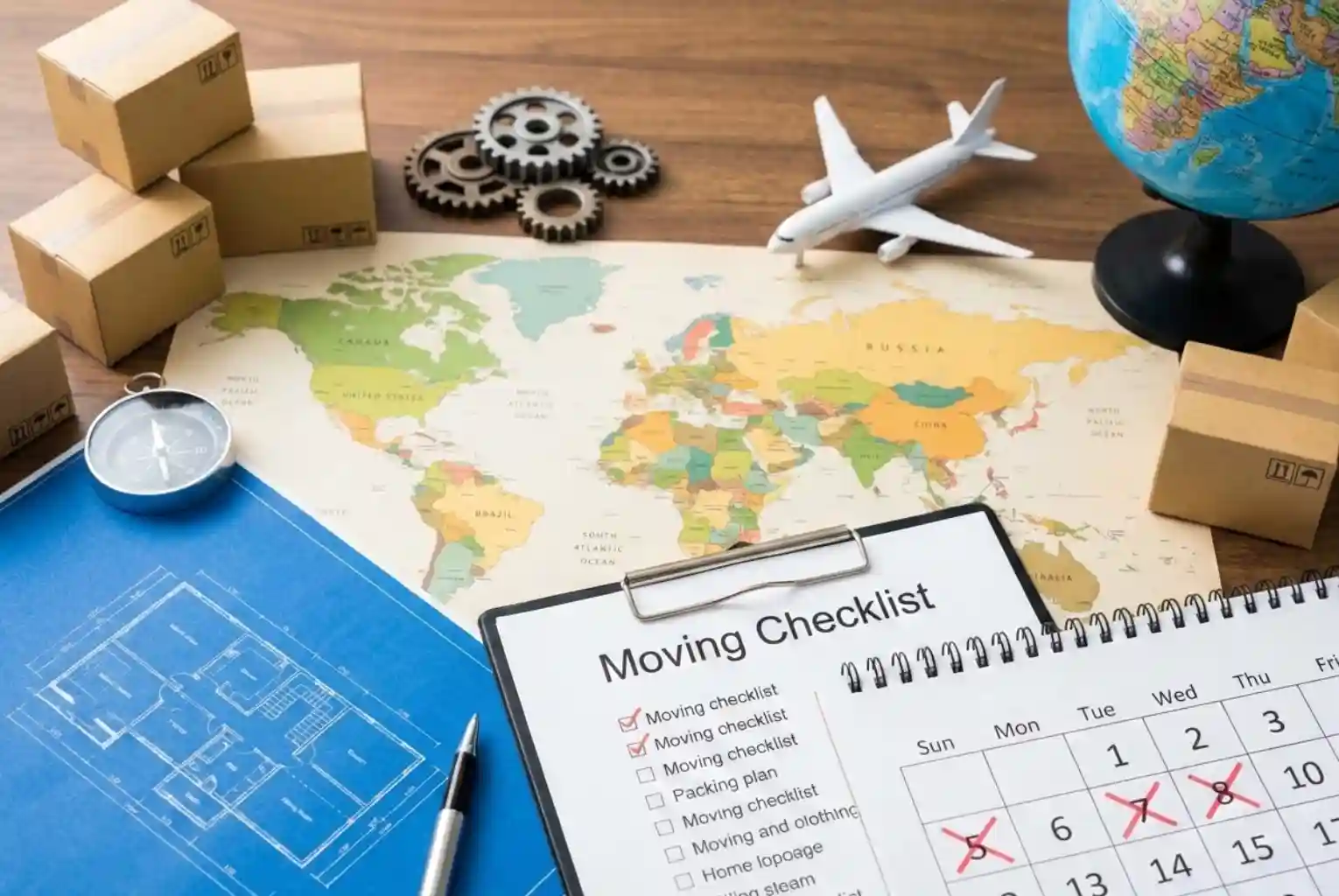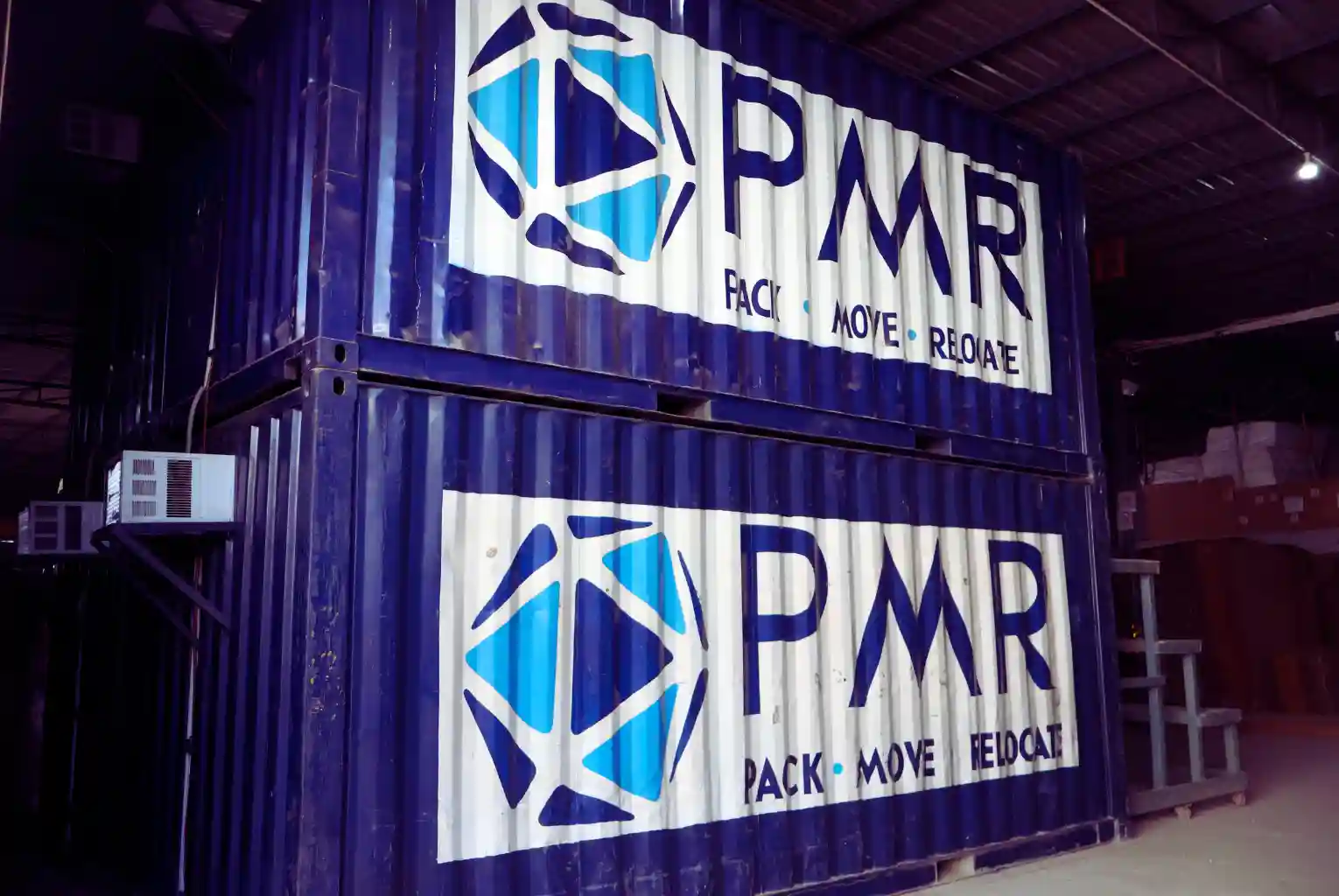HOW CAN YOU LEARN A NEW LANGUAGE AFTER RELOCATING TO A NEW COUNTRY?

Introduction
Relocating to a new nation is more than exchanging boxes and locating the local grocery market— it’s about acclimating to a new lifestyle. One of the biggest transitions is adapting to a new language, especially when you need to quickly communicate in unfamiliar surroundings. Whether you’ve relocated for work, education, or a fresh start, learning the local language can ease your transition, build connections, and help you thrive in your new environment.
If you are curious about how to learn a new language fast, you're not the only one. Many expats face this challenge head-on and often succeed by adopting the right strategies and mindsets. This blog is here to guide you through effective and practical ways to pick up a new language after relocating.
Why Is It Important to Learn the Local Language?
From navigating transportation to making friends and managing daily chores, language is your path to self-assurance and independence. Speaking the native tongue facilitates your integration more quickly and demonstrates respect for the culture and people of your new country. And best of all, you don't have to turn yourself into a poet or philosopher in your new language to feel like you belong. Even simple conversational proficiency can be a lifesaver.
Let's discuss the best method to learn a language quickly after you've relocated.
Begin with What You Hear and See Daily
Immersion is the most authentic method of acquiring a new language. Listen to street signs, menus, public announcements, and small talk around you. Make your environment your language classroom. Name objects in your home in the new language, watch local television, or listen to native radio stations. The more you're immersed, the more your brain learns.
Over time, this regular exposure becomes a subconscious learning process that enhances your recall and understanding.
Surround Yourself with Native Speakers
Your fastest learning is via conversations. Make a language partner, attend clubs in your town, or offer to volunteer your time. It doesn't enhance your vocabulary only; it shows you slang, gestures, tone, and conversation phrases used by locals that won't be in textbooks. And yes, it involves mistakes–accept them!
For new residents and expats alike, practicing with locals is one of the best language learning tips for expats that boosts confidence and conversational fluency.
Set SMART Goals to Track Your Progress
Establish language objectives that are Specific, Measurable, Achievable, Relevant, and Time-bound (SMART). For example, target 10 new words a day, have a 5-minute conversation at the end of the week, or be able to watch a 30-minute TV show without subtitles. These objectives keep you motivated and provide a feeling of advancement that increases your morale.
Remember: learning a language is a marathon, not a sprint—but goal setting will keep you on track.
Use Technology as Your Learning Buddy
Language learning is now at your fingertips with technology. Duolingo, Babbel, or Memrise can be excellent resources, particularly when used every day. Podcasts, YouTube channels, and online flashcards can help you based on your level and learning style.
If you're moving, language learning apps provide a flexible solution to remain consistent in your process even during a hectic relocation.
Commit Time Each Day (Even 15 Minutes)
You don't have to spend hours a day studying. Even 15–20 minutes of focused practice can make a significant difference in the long run. Language learning is more about steady consistency than intensity. Use your daily commute, lunch break, or end-of-day relaxation time to practice listening, speaking, or writing.
Repetition and bursts of learning in small chunks can help build solid neural pathways for memory and recall.
Participate in Local Experiences
The most valuable lessons are learned outside of the classroom. Order some food using the local tongue, ask for directions, or try attending a social event. Every-day conversations compel your brain to respond quickly, developing fluency as well as confidence.
This is one of the top tips for someone interested in knowing how to learn a language after moving abroad, particularly where theoretical knowledge must be put into practice.
Learn Like a Child: Copy, Repeat, Imitate
Kids learn by imitation—so do adults. Don't be afraid to imitate phrases, gestures, or expressions. You don't need to be perfect; just be brave.
Record your voice, compare it with native speakers, and fix your pronunciation. Gradually, this technique considerably refines your speaking ability.
Maintain a Language Journal
Journaling can be a potent reinforcement tool. Record new words, sentence formation, idioms, and cultural observations. Go through it weekly to reinforce your comprehension. Writing down helps retention and gives you a personal learning reference.
Don’t Fear the Grammar (But Don’t Dwell on It)
Grammar matters—but don't let that hold you back. Just practice everyday usage first. Find out how others communicate in everyday life, then master the rules of grammar along the way. Fluency is all about communication, not flawlessness.
This equilibrium will allow you to speak a new language fast after relocation, with usability in mind instead of scholastic expertise.
Immerse Yourself Emotionally and Culturally
Language isn't merely a vocabulary system—it's an echo of a people's values and feelings. View local films, listen to indigenous music, or read local legends. Emotional attachments help words get remembered. Cultural immersion turns language learning into an enjoyable and heartfelt experience.
These language immersion tips for new residents also enhance your moving experience, helping you feel more integrated and embraced in your new society.
Try a 30-Day Language Sprint
Challenge yourself: attempt an intensive 30-day language regime. Pledge high-intensity exposure—listening, speaking, reading, and writing—over a short time. Combine everyday practice with natural conversations and app learning.
This challenge leverages the magic of intensified language learning methods, producing fast results in brief timeframes.
Sign up for an Intensive Course or Language Bootcamp
If self-learning isn’t your cup of tea, consider enrolling in a crash course. Many cities offer short, intensive language programs tailored for new arrivals. These sessions often use intensive language learning methods, including role-play, immersion, and active participation.
You’ll meet fellow learners, receive feedback from trained instructors, and develop structured fluency.
Push Yourself with Real-Life Scenarios
When you're comfortable, stretch beyond. Dial customer service, request assistance at the government office, or chat with strangers on public transportation. It's in these situations that your skills are tested and perfected.
Final Thoughts: You’ve Got This!
Learning a new language can seem daunting, especially after a big move. But the key lies in consistency, courage, and curiosity. Don’t compare yourself to others—embrace your unique pace and celebrate small wins. You’re not just learning a language; you’re learning how to connect, adapt, and belong.
Whether you're trying to learn a language in 3 months or just want to be able to have a conversation with your neighbor, each step you take matters. Be patient with yourself and enjoy the process.
We at PM Relocations understand that relocation isn't just physical—it's also cultural and emotional. We therefore don't merely help you move your things. Our personnel help you acclimate to your new environment, offer advice on relocation, and provide emotional support as you begin again. Let us help you acclimate—language, culture, and everything.
Our Blogs

WHY SUCCESSFUL RELOCATION DEPENDS MORE ON RELOCATION PLANNING THAN DISTANCE
Successful relocation is rarely defined by distance—it’s driven by effective planning. From choosing the right storage solutions to coordinating warehouse timelines, smart relocation planning helps protect your belongings, reduce delays, and ensure a seamless transition. Whether it’s short-term storage or long-term warehousing, organized logistics play a critical role in making any move successful.

WHY YOUR BELONGINGS DESERVE A PAUSE: RETHINKING STORAGE AND WAREHOUSING SERVICES DURING RELOCATION
Relocation is not always a seamless door-to-door journey. Delayed handovers, international transit schedules, temporary housing, or sudden changes in plans often create a gap between moving out and moving in. During this uncertain phase, professional storage and warehousing services provide a safe, controlled environment for your belongings. From short-term holding to long-term storage, these solutions ensure your household goods remain protected, organized, and ready for the next step of your relocation—without adding stress to an already complex move.

WHY INTERNATIONAL RELOCATION TIMELINES OFTEN SLIP — AND WHAT YOU CAN DO TO STAY ON TRACK
International relocation timelines often look straightforward on paper—but reality tells a different story. Visa approvals, customs regulations, documentation gaps, port congestion, and coordination between multiple service providers can easily cause unexpected delays. Even small oversights early in the planning stage can snowball into weeks of disruption. This blog breaks down the real reasons why international relocation timelines slip and, more importantly, outlines practical steps you can take to anticipate risks, plan smarter, and keep your global move moving forward without unnecessary stress.



